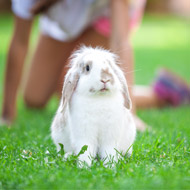Quiz aims to improve pet ownership skills

More than five million pet owners undertook no research at all before getting their pet.
A new online tool to help measure the health and happiness of the nation’s pets has been launched by veterinary charity PDSA.
Based around the five welfare needs, The Big Pet Quiz 2018 offers personalised advice to owners about how they can make simple adjustments to benefit their pet’s wellbeing.
The tool comes in response to the PDSA’s Animal Wellbeing (PAW) Report 2018, which found that more than five million pet owners undertook no research at all before getting their pet. The report showed that, while 74 per cent of owners feel informed about their pet’s welfare needs, just one in eight could correctly identify all five from a list.
The PDSA says that without proper research, potential pet owners could rely on the unrealistic portrayal of pets across social media and in films.
“Owners undoubtedly love their pets and want to do the best by them. However, failure to do the right research beforehand means that owners aren’t fully equipped to do that,” said PDSA Vet Olivia Anderson-Nathan.
“Unfortunately, it seems that some owners are also taking on pets off the back of trends; maybe they’ve seen a certain type of pet in a film or on social media. Whilst this is done with all good intentions, it’s worrying if it’s done without any research or consideration of an animal’s health and happiness.”
She continued: “Most of us wouldn’t dream of buying a new car or booking a holiday without researching all of the options and the costs involved. But too often, little thought is going into the time, commitment and money involved in raising a happy and healthy pet throughout their lifetime.”



 The latest
The latest